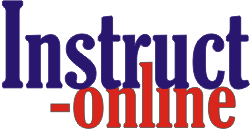
 Phone
(319) 626-2302
Phone
(319) 626-2302
Catalog Number : ncd1672
Title : Joint Commission Provision of Care Standards
Speaker : Sue Dill
Webplay Recording Date : 1-31-2014
Webplay Price : $ 125 for two weeks viewing
Webinar Overview:
The purpose of this program is to familiarize the attendees with the 2014 Joint Commission chapter on the Provision of Care (PC). One of the PC chapter standards made the top ten problematic standards with the Joint Commission and this will be discussed along with solutions to ensure compliance. This program will discuss both 2013 and 2014 changes.
Note: the restraint standards are extensive and are covered in a separate program although the changes made by CMS will be discussed regarding soft wrist restraints.
Target Audience
This program is for anyone involved in the provision of patient care especially physicians, nurses and other health care providers. Risk managers, hospital attorneys, compliance officers, Joint Commission coordinators and quality and performance improvement staff, chief nursing officer (CNO), chief operating officer (COO) Chief Medical Officer (CMO), policy and procedure committee members, department managers, staff nurses, case managers, patient safety officer, IS staff, ethic committee members, nurse educators, nurse managers, patient educators, behavioral health staff, director of dietary, hospice staff, pharmacist and pharmacy staff, falls specialist, falls team, staff involved in moderate or deep sedation, CRNA and anesthesiologist, PACU nurses, social workers, discharge planners, and others who participate in ensuring compliance with requirements and the process should attend. This program is a must attend for nursing staff.
Webinar Objectives:
- Discuss recent memos and standard changes from CMS to the CAH Conditions of Participation
- Describe recommendations for hospitals to implement regarding restraint and seclusion to improve patient safety
- Recall recommendations to improve MRI safety
Webinar Agenda/Outline:
- Written process for accepting patients and transfers and accepting patients to meet their need PC.01.01.01
- Assessment and reassessment of patients and what information must be included in the assessment PC.01.02.01
- Defined time when assessment must be done, H&P, Nursing assessment, nutritional assessment, and functional assessment PC.01.02.03
- RN determines needs for nursing care PC.01.02.05
- Pain management and pain assessment and referral PC.01.02.07
- Fall assessment and management PC.01.02.08
- Abuse and neglect patients and assessment and reporting PC.01.02.09
- Assessment of patients who receive psychosocial services to treat alcoholism
- Assessment of patients who receive treatment for emotional or behavioral disorders PC.01.02.13
- Diagnostic testing and procedures performed as ordered and in time frames and interpretation of test result PC.01.02.15
- Plan of care PC.01.03.01 and changes in 2013 by CMS
- Behavioral management policies, time outs, aversive procedures, and seclusion PC.01.03.03
- Patient flow and boarding of behavioral health patients (2013 and 2014 changes)
- Behavioral management and plan of care, time outs, restraints, least restrictive and patient physical safety PC.01.03.05
- Care, treatment, and services to patient and plans of care, blood transfusions, and IV medications PC.02.01.01
- Care provided as per order, order for medications, respiratory treatment, and read back of verbal orders PC.02.01.03
- Change in respiratory orders PC.02.01.03
- Interdisciplinary and collaborative care and treatment PC.02.01.05
- Resuscitation services and training, resuscitation equipment and procedures PC.02.01.11
- Respond to changes in the patient’s condition and rapid response teams not required PC.02.01.19
- Coordination of patient care and hand off communication PC.02.02.01
- Food and nutrition products, special diets, what to do if patient refused food, storage of food and nutrition products, diet manual, and proper sanitation of food and nutrition PC.02.02.03
- Education for children and youths PC.02.02.07
- Access to outdoors with patients with a long length of stay PC.02.02.11
- Comfort and dignity at end of life and required staff education PC.02.02.13
- Patient education and training, patient training based on assessment, what training and education to every patient must include, information on the safe and effective use of medication, use of equipment, oral hygiene, fall reduction strategies, and communication of patient safety concerns PC.02.03.01
- Patient personal hygiene, housekeeping, incontinent patients, oral care program and maintaining living quarters PC.02.03.03
- High risk procedures including moderate and deep sedation or anesthesia PC.03.01.01
- Patient care before operative or high risk procedures including deep sedation and anesthesia, evaluations, pre procedural education, preanesthesia assessments, plan of care for anesthesia, 48 hour requirements for preanesthesia and postanesthesia assessments, and LIP concurrence with anesthesia plan PC.03.01.03
- Monitoring requirements for moderate or deep sedation, what must be monitored, PC.03.01.05
- Care after moderate sedation or deep sedation PC.03.01.07
- Lab procedures for handling of tissue removed during a surgical procedure PC.03.01.08
- ECT safely performed, policy required and documentation requirements PC.03.01.09
- Surgical treatments for emotional, mental or behavioral health disorders PC.03.01.11
- Restraint and seclusion for non behavioral health patients, leadership responsibilities, and use of evidences based guidelines PC.03.02.01
- Restraint and seclusion policies required, must cover 11 topics, who must approved restraint policy PC.03.02.03
- Standards on restraint and seclusion for those who do not use the Joint Commission for deemed will be provided but not be covered since involves small number of hospitals and covered in separate program (VA hospitals)
- However the new changes on soft wrist restraints will be discussed
- Restraint and seclusion standards will not be discussed but will be provided for those that use the Joint Commission for deemed status since these are covered in a separate program that combines both the CMS and TJC restraint standards. PC.03.05.01, PC.03.05.03, PC.03.05.05,PC.03.05.07, PC.03.05.09, PC.03.05.11, PC.03.05.13, PC.03.05.15, PC.03.05.17, PC.03.05.19
- Patient needs after discharge or transfer PC.04.01.01
- Hospital discharges or transfer and assessment, needs after discharge, services needed after discharge, discharge planning and reassessment PC.04.01.03
- Patients are informed before discharge or transfer, reason for discharge, written discharge instructions required, patient and family involvement in process PC.04.01.05
- Hospital notifies other services providers of information about discharge, summary of care, goals, community resources made available etc. PC.04.02.01
- Safe administration of blood and look back program and required policy PC.05.01.09
- Radiation testing, CT scans and California hospitals
Contact Hours:
- Nursing participants: Instruct-online has approved this program for 2.4 contact hours, Iowa Board of Nursing Approved Provider Number 339.Completion of offering required prior to awarding certificate.
- All other participants: Must attend the entire Webinar and complete a Webinar critique to receive a 2 Hour Attendance Certificate for each program.
Refund Policy:
Full tuition is refunded immediately on request if the participant has not been sent the program materials and instructions. Once the instructions (including access codes) have been sent, a full refund will be issued only after the program runs and it is verified that the participant did not access the program
.